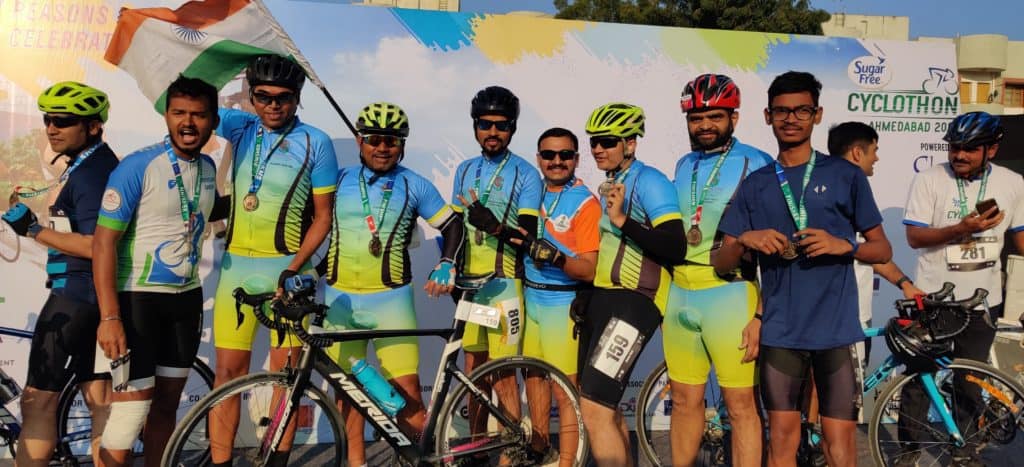India’s cities are dealing with an array of complex challenges that have arisen from growing rates of urbanisation, population, motorisation and wealth disparity. They have been consistently ranked as the world’s most congested and polluted cities, which has led to high annual traffic deaths and extremely dangerous levels of particulate matter, on top of lost economic potential. These circumstances, in addition to the COVID-19 pandemic, in all its calamity, have the effect of bringing to the fore the benefits that cycling can offer in terms of local economic recovery, healing mental and physical health, reinforcing social connections in our communities and providing a glimpse of less polluted and congested cities.
One of the approaches BYCS India (a non profit that facilitates the network, providing resources and lobbying for supporting cycling) takes in order to increase the uptake of urban cycling is network building. Through networks, we can share and acquire knowledge, adapt processes to local contexts as well as amplify ideas and best practices to accelerate cycling. Networks enable us to engage and collaborate with different sectors of society to make our cities more humancentric, regardless of their scale or geographic location.
Read more: Cycling will transform Hyderabad and create a happier city: Santhana Selvan, Bicycle Mayor
Initiative to amplify cycling in Indian cities
The Bicycle Citizens Network is a new platform uniting and equipping cycle advocates in India and around the world. It forms a chorus of bold voices striving to shift and amplify the narrative around urban cycling and ultimately build demand for better cycling cities.
Anyone who wishes to join the movement can do so by signing up here and following BYCS India social media to help spread the Bicycle Citizen advocacy tools.

“We’re delighted about the opportunities the Bicycle Citizens Network brings to the table. The Bicycle Citizens Network will allow people from all walks of life to come together and get the support they need to promote cycling in their communities — to create more liveable and inclusive cities,” says Shreya Gadepalli, South Asia Programme Lead, ITDP.
The Bicycle Citizens Network was launched on World Bicycle Day 2021 (June 3rd) with an open-source advocacy campaign. Sharable advocacy tools will be disseminated on social media to be spread outside of traditional cycling bubbles, aiming to challenge mobility preconceptions and status quo, ultimately driving demand for cycling and creating more human-centric cities.
As the Bicycle Citizens Network grows, BYCS India Foundation is excited to work towards co-defining its direction, and focusing its future actions: from calls to action to mass petition signing. The organisation believes that there is huge potential for bicycle citizens to add momentum to the demand for better, more democratic cycling cities.
(This is a press release from BYCS India Foundation republished here with minimal edits)
